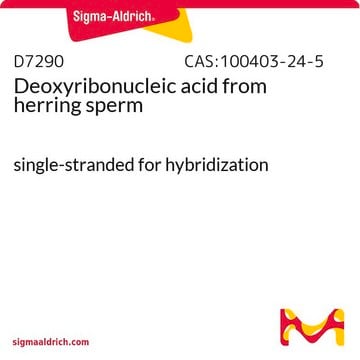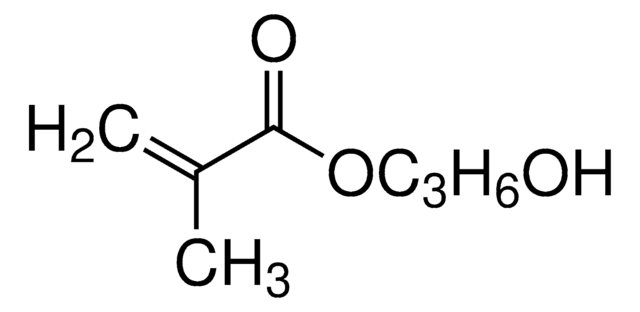529257
Poli(2-hidroxietil metacrilato)
average Mv 1,000,000
Sinónimos:
Poli (2-HEMA), Poli-HEMA
About This Item
Productos recomendados
form
crystals
mol wt
average Mv 1,000,000
density
1.15 g/mL at 25 °C (lit.)
SMILES string
CC(=C)C(=O)OCCO
InChI
1S/C6H10O3/c1-5(2)6(8)9-4-3-7/h7H,1,3-4H2,2H3
InChI key
WOBHKFSMXKNTIM-UHFFFAOYSA-N
¿Está buscando productos similares? Visita Guía de comparación de productos
Physical form
Storage Class
11 - Combustible Solids
wgk_germany
WGK 3
flash_point_f
Not applicable
flash_point_c
Not applicable
ppe
Eyeshields, Gloves, type N95 (US)
Certificados de análisis (COA)
Busque Certificados de análisis (COA) introduciendo el número de lote del producto. Los números de lote se encuentran en la etiqueta del producto después de las palabras «Lot» o «Batch»
¿Ya tiene este producto?
Encuentre la documentación para los productos que ha comprado recientemente en la Biblioteca de documentos.
Los clientes también vieron
Artículos
Professor Shrike Zhang (Harvard Medical School, USA) discusses advances in 3D-bioprinted tissue models for in vitro drug testing, reviews bioink selections, and provides application examples of 3D bioprinting in tissue model biofabrication.
Professor Shrike Zhang (Harvard Medical School, USA) discusses advances in 3D-bioprinted tissue models for in vitro drug testing, reviews bioink selections, and provides application examples of 3D bioprinting in tissue model biofabrication.
Professor Shrike Zhang (Harvard Medical School, USA) discusses advances in 3D-bioprinted tissue models for in vitro drug testing, reviews bioink selections, and provides application examples of 3D bioprinting in tissue model biofabrication.
Professor Shrike Zhang (Harvard Medical School, USA) discusses advances in 3D-bioprinted tissue models for in vitro drug testing, reviews bioink selections, and provides application examples of 3D bioprinting in tissue model biofabrication.
Protocolos
Frequently asked questions (FAQs) for KAPA SYBR® FAST One-Step qRT-PCR Kits.
Frequently asked questions (FAQs) for KAPA SYBR® FAST One-Step qRT-PCR Kits.
Frequently asked questions (FAQs) for KAPA SYBR® FAST One-Step qRT-PCR Kits.
Frequently asked questions (FAQs) for KAPA SYBR® FAST One-Step qRT-PCR Kits.
Nuestro equipo de científicos tiene experiencia en todas las áreas de investigación: Ciencias de la vida, Ciencia de los materiales, Síntesis química, Cromatografía, Analítica y muchas otras.
Póngase en contacto con el Servicio técnico










